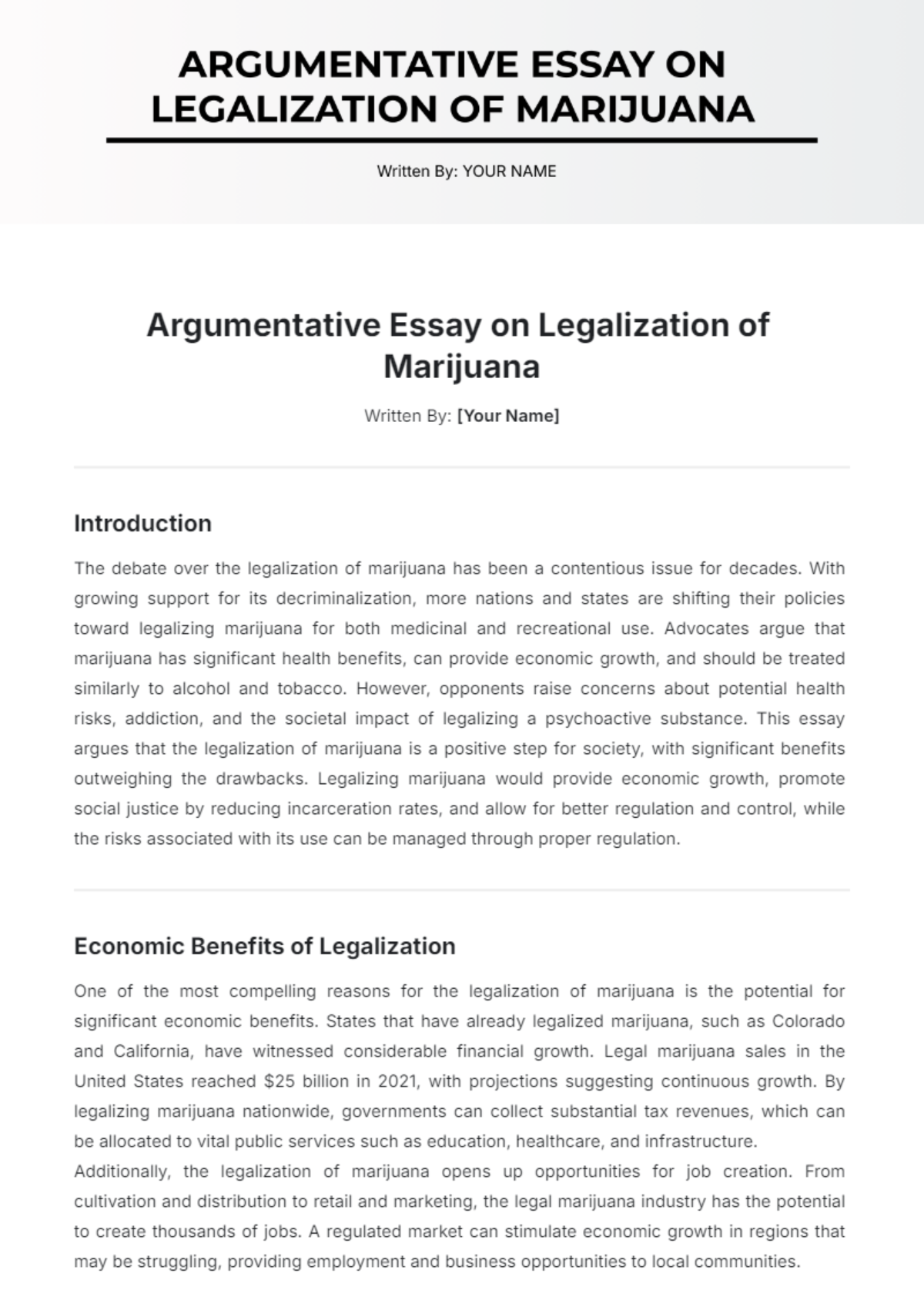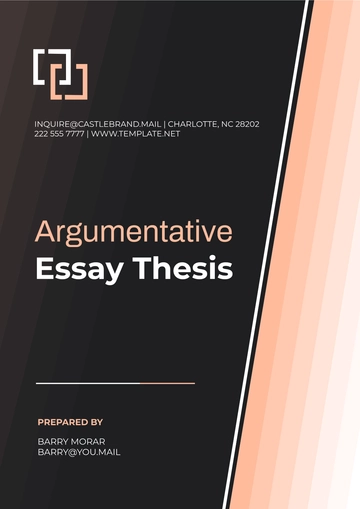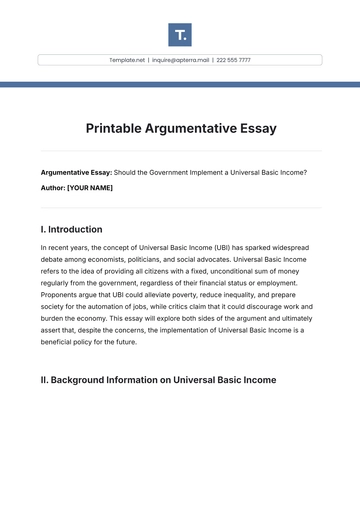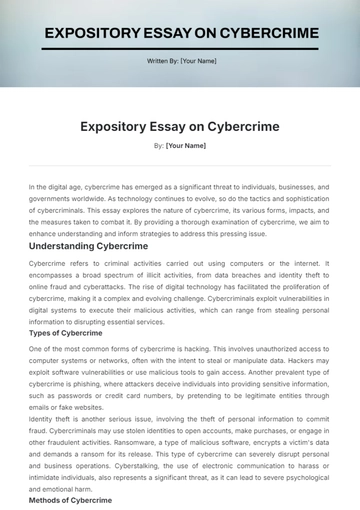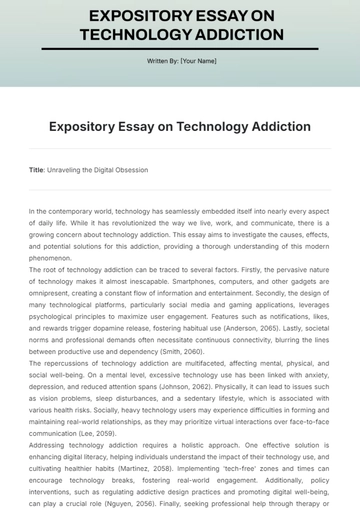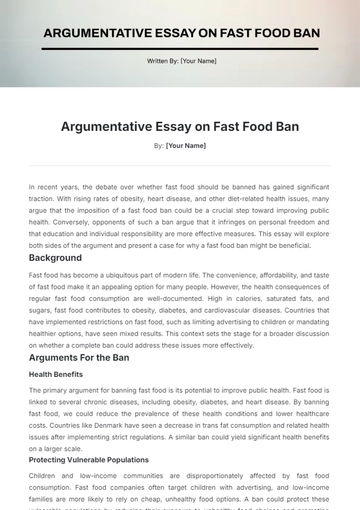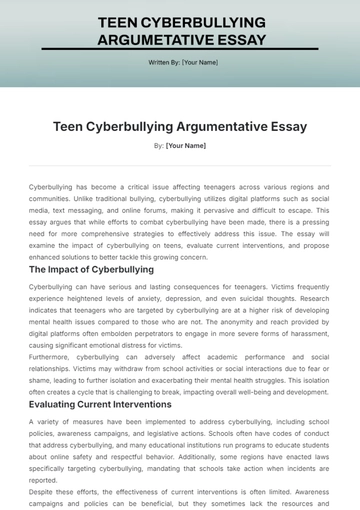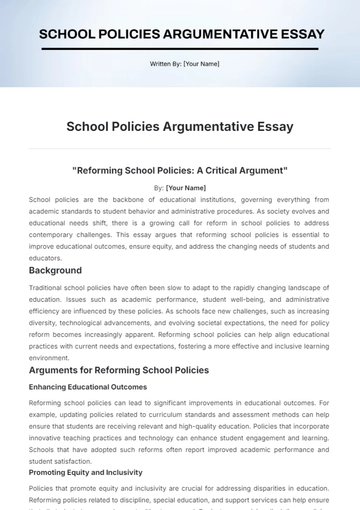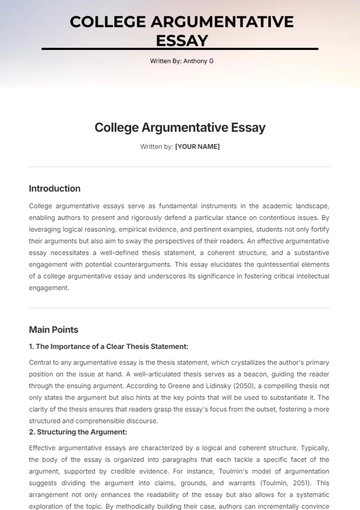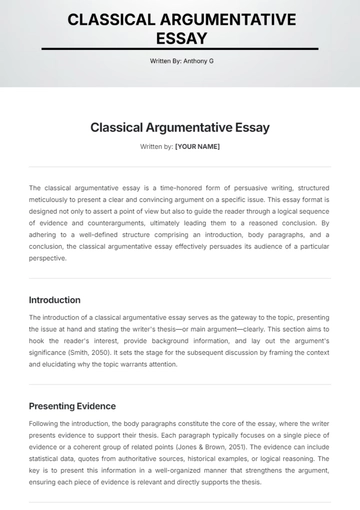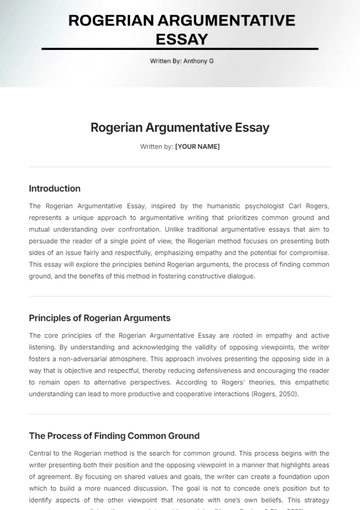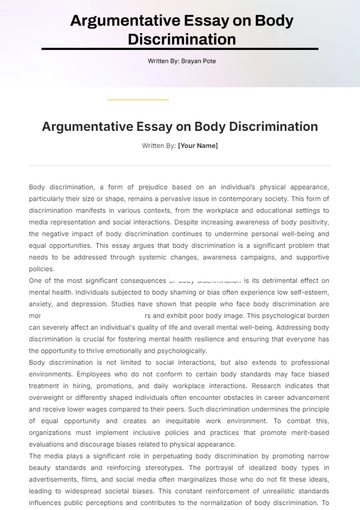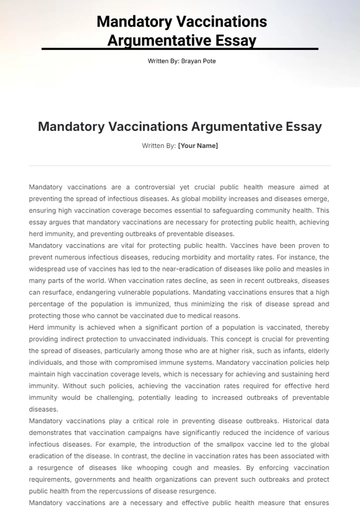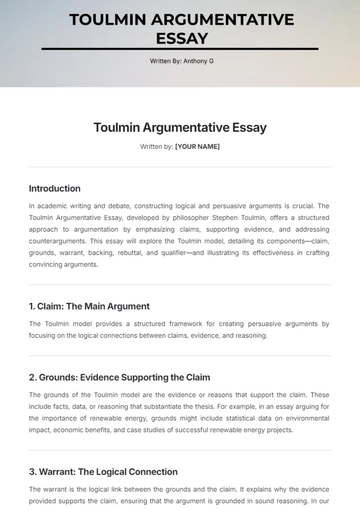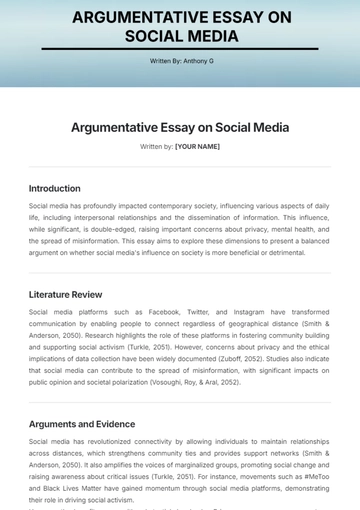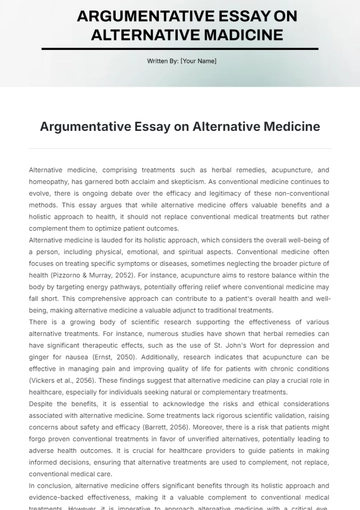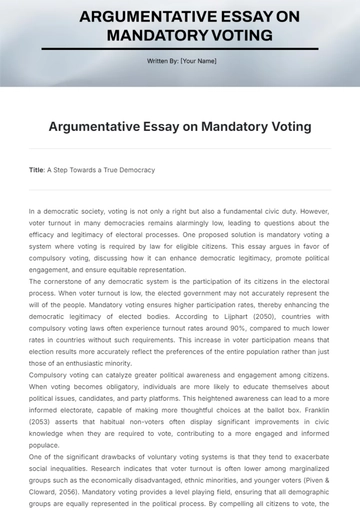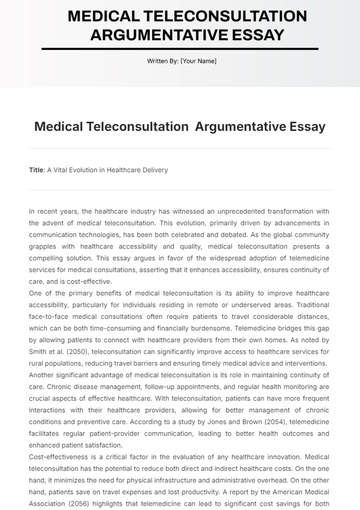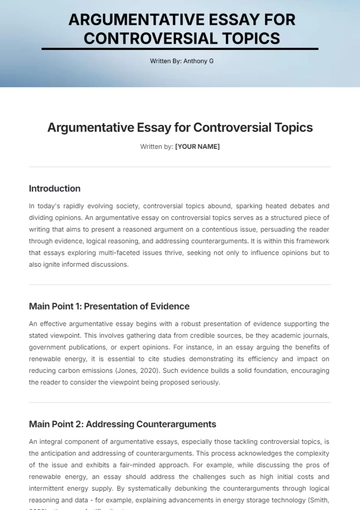Argumentative Essay on Legalization of Marijuana
Written By: [Your Name]
Introduction
The debate over the legalization of marijuana has been a contentious issue for decades. With growing support for its decriminalization, more nations and states are shifting their policies toward legalizing marijuana for both medicinal and recreational use. Advocates argue that marijuana has significant health benefits, can provide economic growth, and should be treated similarly to alcohol and tobacco. However, opponents raise concerns about potential health risks, addiction, and the societal impact of legalizing a psychoactive substance. This essay argues that the legalization of marijuana is a positive step for society, with significant benefits outweighing the drawbacks. Legalizing marijuana would provide economic growth, promote social justice by reducing incarceration rates, and allow for better regulation and control, while the risks associated with its use can be managed through proper regulation.
Economic Benefits of Legalization
One of the most compelling reasons for the legalization of marijuana is the potential for significant economic benefits. States that have already legalized marijuana, such as Colorado and California, have witnessed considerable financial growth. Legal marijuana sales in the United States reached $25 billion in 2021, with projections suggesting continuous growth. By legalizing marijuana nationwide, governments can collect substantial tax revenues, which can be allocated to vital public services such as education, healthcare, and infrastructure.
Additionally, the legalization of marijuana opens up opportunities for job creation. From cultivation and distribution to retail and marketing, the legal marijuana industry has the potential to create thousands of jobs. A regulated market can stimulate economic growth in regions that may be struggling, providing employment and business opportunities to local communities.
Social Justice and Reduction of Incarceration
Legalizing marijuana also addresses significant social justice concerns, particularly regarding the war on drugs. For decades, drug enforcement policies have disproportionately impacted minority communities, leading to higher incarceration rates for non-violent drug offenses, especially related to marijuana. According to a 2020 report by the American Civil Liberties Union (ACLU), Black individuals are nearly four times more likely to be arrested for marijuana possession than their white counterparts, despite similar usage rates.
By legalizing marijuana, governments can work toward rectifying these racial disparities and reducing the strain on the criminal justice system. Legalization would allow for the expungement of marijuana-related convictions, giving people, particularly those from marginalized communities, a second chance. This move would also relieve overcrowded prisons, freeing up resources that could be better spent addressing serious crimes.
Regulation and Control
One of the main arguments in favor of legalization is the potential for better regulation and control. Under prohibition, marijuana is part of the black market, making it difficult to regulate quality, potency, and safety. Legalization allows for government oversight, ensuring that marijuana products meet safety standards, are accurately labeled, and are kept out of the hands of minors.
Furthermore, regulation enables governments to control the potency of marijuana products, reducing the risk of users consuming dangerously high levels of THC. In contrast, the black market offers no such protections. With legalization, law enforcement can also focus on regulating the industry, rather than spending resources on criminalizing marijuana users, many of whom are otherwise law-abiding citizens.
Health Concerns and Counterarguments
Despite the benefits of legalization, opponents argue that marijuana poses significant health risks, including addiction, impaired cognitive function, and mental health issues such as anxiety and depression. Critics also express concern about increased use among adolescents and the potential for impaired driving under the influence of marijuana.
However, these concerns can be addressed through regulation and public education. Just as governments have regulated alcohol and tobacco, they can implement policies that restrict marijuana sales to adults, provide public education on responsible use, and enforce strict penalties for driving under the influence. Additionally, studies have shown that the risks associated with marijuana are significantly lower than those posed by legal substances like alcohol and tobacco, both of which are far more addictive and harmful to public health.
Conclusion
The legalization of marijuana offers numerous benefits, including economic growth, social justice, and better regulation and control of a substance that millions of people already use. While there are legitimate concerns regarding health risks and the potential for misuse, these issues can be effectively managed through proper regulation, education, and enforcement. By legalizing marijuana, society can address long-standing injustices related to the war on drugs, generate much-needed revenue, and ensure a safer, more controlled environment for consumers. The benefits far outweigh the drawbacks, making legalization a progressive and practical step for the future.
Essay Templates @ Template.net
